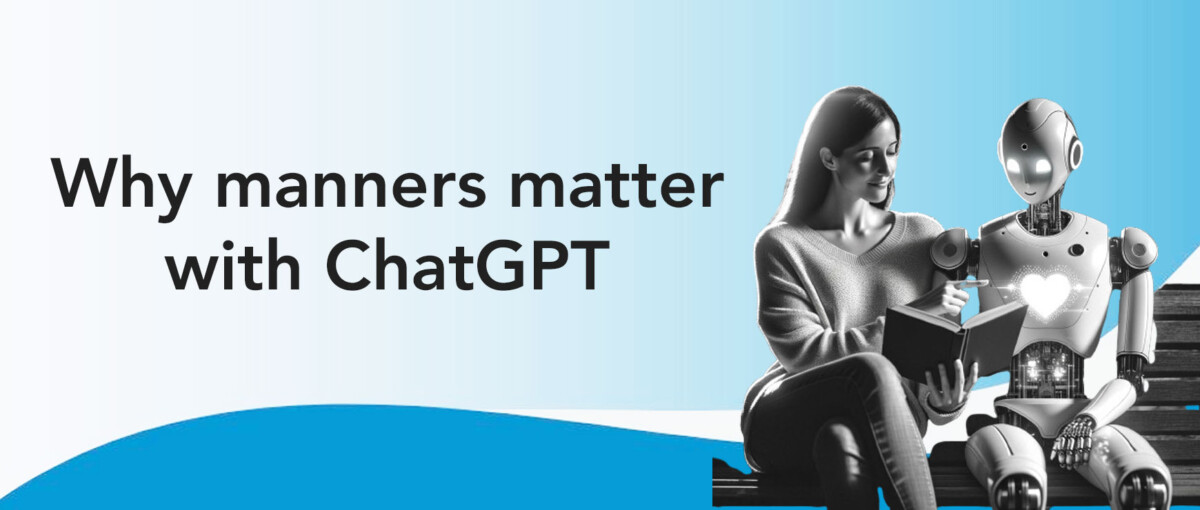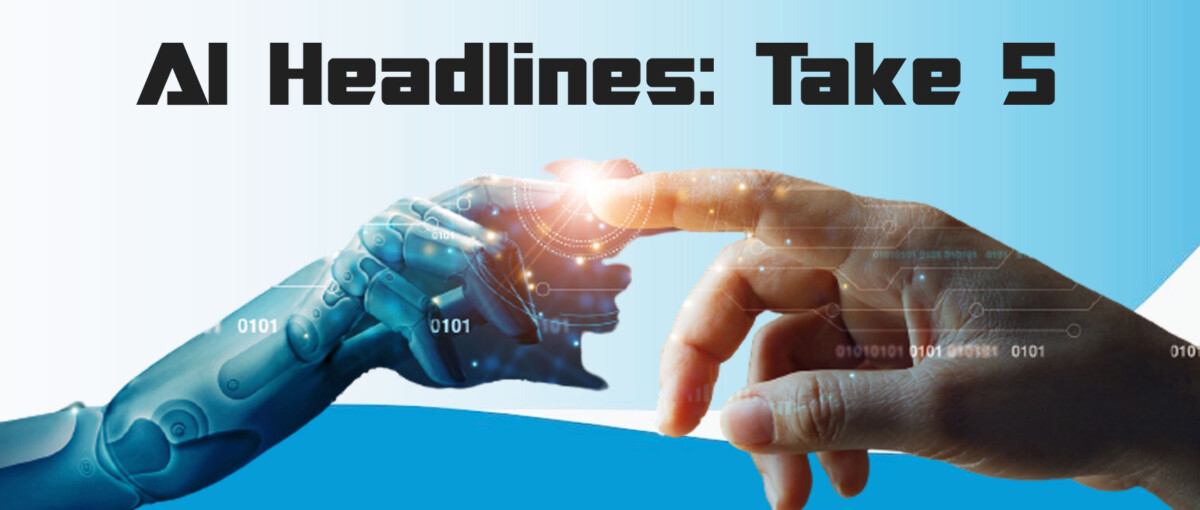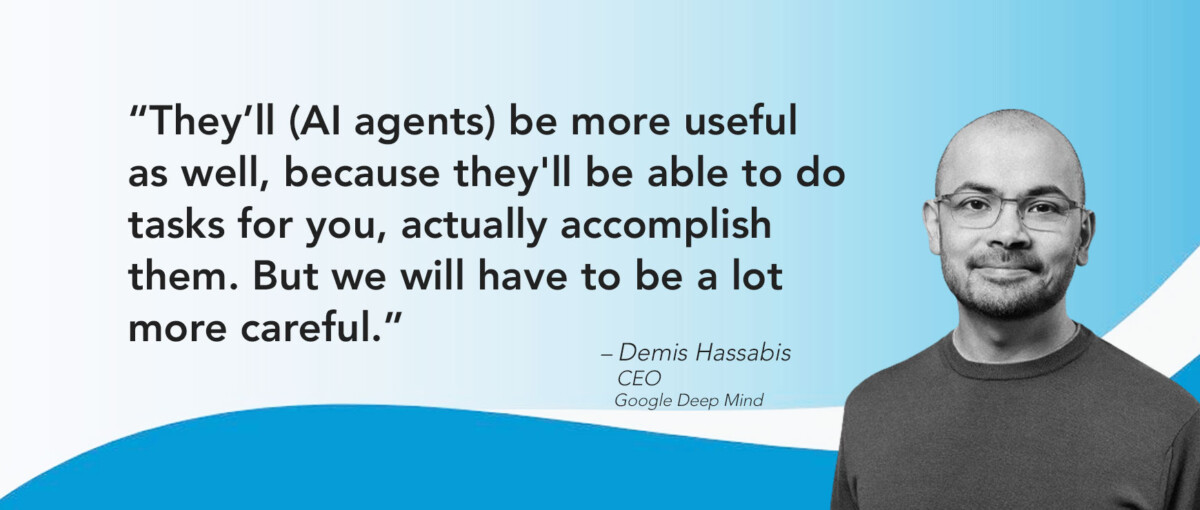You are viewing our site as an Agent, Switch Your View:
Agent | Broker Reset Filters to Default Back to ListReal AI: Why manners matter with ChatGPT, CoreLogic looks at what's next, facts, headlines and an AI Quote of the Week
March 04 2024
Real AI is a 100% human-created weekly roundup of all things AI in real estate and emerging AI innovations in other sectors likely to impact real estate.
Why manners matter with ChatGPT

Since I (Kevin) started my paid ChatGPT subscription the day after Valentine's Day last year (Feb. 15, 2023), I've been using ChatGPT in some way almost daily. Yesterday, I uploaded a PDF of a menu in French and received a translation in English that was nearly perfect.
One of the best things about being an early tech adopter – which I have been my entire adult life – is you make a ton of mistakes, fall flat on your face even, and not feel bad about it because that's how you learn. Iteration really is the key to success and innovation; that and trying not to make the same mistake twice.
One of the "secrets" I have learned from using ChatGPT for over a year now is that if I was polite, I received better results. I mean significantly better results.
I know that sounds wild; I even had a few colleagues I shared my secret with look at me like I was nuts! But I continue to preface my prompts with phrases like, "Can you please help me...," and after multiple iterations on a prompt, I try to end with a "Thank you" and a compliment, such as "That's great!"
Here's the thing: ChatGPT almost always acknowledges my politeness, replying with kind phrases of its own. From the first time I started doing this, I had a gut feeling I was on to something and kept it up.
So, imagine my reaction (or perhaps relief that I am NOT crazy) when an academic cross-cultural study proved that manners matter when it comes to the performance of Large Language Models (LLMs) like ChatGPT.
The 22-page study entitled "Should We Respect LLMs? A Cross-Lingual Study on the Influence of Prompt Politeness on LLM Performance."
The Cornell University researchers examined the politeness in prompts on LLMs across English, Chinese, and Japanese tasks. The best part, for me, is what they discovered happens when you are rude to ChatGPT.
Researchers found that "Impolite prompts may lead to a deterioration in model performance, including generations containing mistakes, stronger biases and omission of information."
Does that mean the nicer you are to ChatGPT, the better the answers? Not necessarily, as they note that overly polite language does not guarantee better outcomes."
It turns out that the best politeness level is different according to each language.
What is happening here? Is AI showing signs of being sentient (thinking for itself)?
Not at all. According to the researchers, LLMs are simply mirroring human communication. When you are polite to your chatbot, you'll likely get better responses, like when humans communicate.
"This phenomenon suggests that LLMs not only reflect human behavior but are also influenced by language, particularly in different cultural contexts. Our findings highlight the need to factor in politeness for cross-cultural natural language processing and LLM usage," the study explains.
My advice: be kind to your ChatGPT because it may not only give you better answers today, especially since a new memory feature is being added, but you may find it helps improve future answers, too.
CoreLogic Clareity24 AI keynote looks at what's next

Sitting in the audience at the recent Clareity24 MLS Workshop in Scottsdale, AZ, was a remarkable treat. Check out my X posts, and you'll get a sense of the breadth and depth of the top-notch content. The invitation-only event is a perennial sellout, and it did not disappoint.
The AI keynote, presented by Dr. Radhika Dirks, CEO and Co-Founder of XLabs and RIBO AI, was terrific in providing a level-set on AI for MLS executives.
She has the creds: She's been named one of Deloitte's top women in the AI world and Forbes' 30 Women in AI to Watch. Radhika co-founded Seldn, an AI start-up that accurately predicted the rise of ISIS two weeks before The New York Times coined the term. As CEO and co-founder of XLabs, she heads a moonshot factory for artificial intelligence innovations that's reportedly getting closer to finding a cure for cancer.
Oh, and she holds a Ph.D. in Quantum Computing and an M.S. in Nanotechnology from the University of Illinois at Urbana-Champaign.
My six big takeaways:
- Generative AI enables the creation of highly realistic fake images, videos, voices, etc. It's creating a creative disruption unlike anything we have seen. On the positive side, AI could expand the capabilities and speed of creativity. On the negative side, AI will be used to spread misinformation and manipulate people. Her suggestion: as humans, to determine what is real and what is fake: trust your gut. That, and we will need AI to identify AI.
- AI robots will provide human-like interactions for customer service, advice, healthcare, daycare, and more. This could replace many jobs requiring less sophisticated and repeatable tasks—the bigger risks are exacerbating loneliness and decreasing real human connections.
- Integrated AI will be embedded into nearly every aspect of life. This amplifies the impacts, risks, and benefits of AI overall.
- Bigger, better, and more capable AI models are coming at us like a tsunami: rapidly growing in speed and size. The exponential growth of AI that we are witnessing will only accelerate.
- Key risks include hallucinations (or lies) from AI, bias perpetuated by training data, and copyright/IP issues with AI systems training on and reproducing others' data. (Note: copyright lawsuits are pending everywhere.)
- While risky, AI also has enormous potential: it found potential cures for 11 cancers in six months in one example. The future of AI? We must harness it for social good while mitigating risks.
The bottom line is that generative and integrated AI is advancing rapidly, bringing transformative change, and requiring vigilance around risks as we seek to leverage its vast promise. What real estate pros need to do: Adapt quickly to find ways to leverage AI while continuing to focus on human connections because that's what we do best!
AI Fast Facts

- Almost 60% of ChatGPT's social media traffic comes from YouTube – Similarweb
- AI will power 95% of customer interactions by 2025 – AI Business
- Around 60% of current occupations will have more than 30% of their activities done by automation without human intervention – McKinsey
- The wearable AI market is expected to reach $180 billion by 2025 – Global Market Insights
- More than half (52%) of telecommunications organizations utilize chatbots to increase their overall productivity – Gartner Survey
Source: Forbes
AI Headlines Take 5

How real estate listings and potentially jobs are shifting to AI | 2/19/24 - The Orange County Register
Jeff Collins details how Compass and Revive are developing new ways of leveraging AI in real estate.
Virtual Staging AI helps Realtors digitally furnish rooms within seconds | 2/23/24 - TechCrunch
This AI Startup tool allows agents to customize and create realistic rooms for a listing.
AI is Uncle Sam's new secret weapon to fight fraud | 2/28/24 - CNN
The U.S. Treasury's AI tool relies on a mix of machine learning and big data to detect fraudulent transactions.
Follow the Money: Big Tech Investment Is Driving Change in Real Estate | 2/23/24 - NAR
Big Tech companies like Meta and Microsoft are betting big on Generative AI.
Extroverts beware: AI is giving real estate introverts the advantage | 2/26/24 - Inman
The rise of AI is making it easier for real estate introverts to communicate effectively and highlight their strengths.
Quote of the Week

To view the original article, visit the WAV Group blog.









